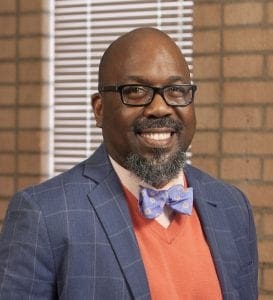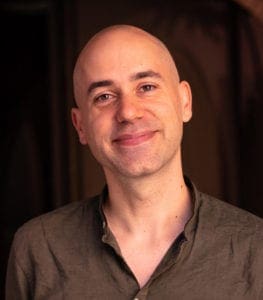Does experiencing financial hardship lead to increased levels of inflammation in the body? Can “Brainbow” technology allow us to visualize cellular function in brilliant color?
Two USC Leonard Davis School of Gerontology faculty members will explore these complex questions with new pilot research funding. Assistant Professor Reginald Tucker-Seeley, holder of the Edward L. Schneider Chair in Gerontology, and Assistant Professor Marc Vermulst each received a 2019 Hanson-Thorell Family Research Scholarship.
Finances and physical health

Ed Schneider Assistant Professor of Gerontology Reginald Tucker-Seeley
Tucker-Seeley, whose research focuses on health disparities and financial well-being, will use the research award to investigate the potential links between experiencing financial hardship and increased markers of inflammation among participants in the Midlife in US (MIDUS) longitudinal study.
He defines financial hardship as different from simple socioeconomic indicators, such as income level or education, since financial hardship takes into account not only the material resources that someone has access to but also the psychosocial response—how people feel about their resources—and the behavioral response, or how they manage or adjust their resources.
“No single indicator of socioeconomic status (e.g. household income) adequately captures the many aspects of the socioeconomic context that influence our health, how we manage chronic conditions, or how we navigate the healthcare delivery system,” Tucker-Seeley said. “In addition, there is research that suggests traditional measures of socioeconomic status may not be equivalent across racial/ethnic groups. This research suggests that at the same income or education level, these socioeconomic resources may be lived differently by racial/ethnic minorities compared to their white counterparts. Measures of financial hardship help us to uncover how socioeconomic status is actually lived.”
Tucker-Seeley said that support from the award would allow him to leverage critical pilot data in order to develop a National Institute on Aging R01 grant application and further explore the issues surrounding financial hardship as well as shed more light on the socioeconomic factors most relevant to chronic disease risk.
“Receiving the Hanson Thorell Family Research Award provides the necessary resources to explore new research questions and build upon and expand my previous research on financial hardship and health,” he said. “I am grateful to the review committee, the Hanson Thorell family, and the Leonard Davis School for supporting my research program to continue the exploration of how adverse socioeconomic circumstances affect health and well-being across the life course.”
Mitochondria in living color

Assistant Professor Marc Vermulst
“Brainbow” technology, originally developed to track neurons and understand brain architecture, could illuminate what happens within cells during aging, Vermulst said.
By directing fluorescent red, blue and green proteins to mitochondria, the organelles that provide cells with energy, Vermulst will be able to see whether the mix of proteins is roughly even throughout the mitochondria or if the various proteins are found in different proportions of mitochondria. Increasingly uneven distribution of proteins is accompanied by reduced mitochondrial function similar to that seen in aging cells, which may indicate that loss of protein homogeneity underlies mitochondrial aging. The color-coding technology will allow Vermulst to investigate mitochondrial movement and placement within C. elegans, a translucent worm in which mitochondria can be observed in real time.
“I am immensely grateful for the support of the Hanson-Thorell Family Research Award,” Vermulst said. “The pilot research funded by this award will form the basis for several future grants aimed at a new form of biology that is critical to organellar function and its interface with human aging.”
Two Hanson-Thorell Family Research Scholarship awards are awarded each year to support two junior USC Leonard Davis School faculty members as they explore new avenues of research and aim to provide a foundation that leads to further grant support for their work. The awards are supported in part by USC Leonard Davis Board of Councilors Chair Shari Thorell and her husband Bob. The award originated with funding from Shari’s father and former Board of Councilors Chairman Al Hanson.





